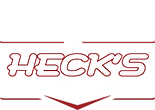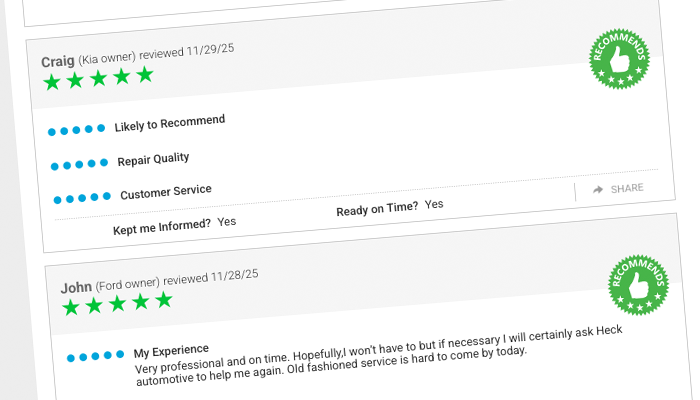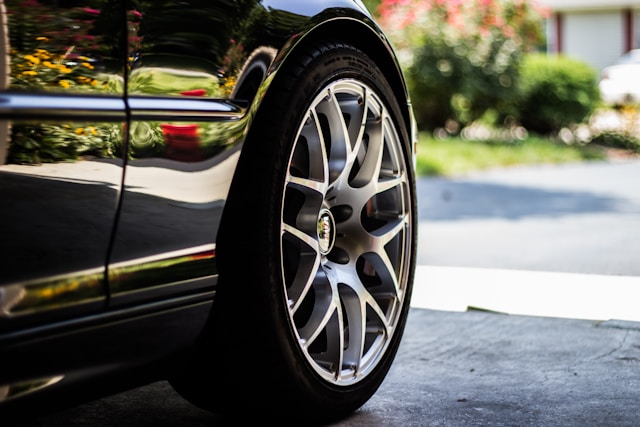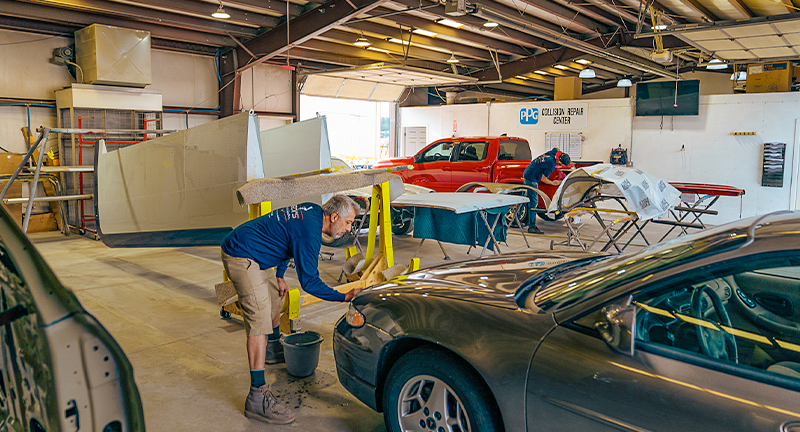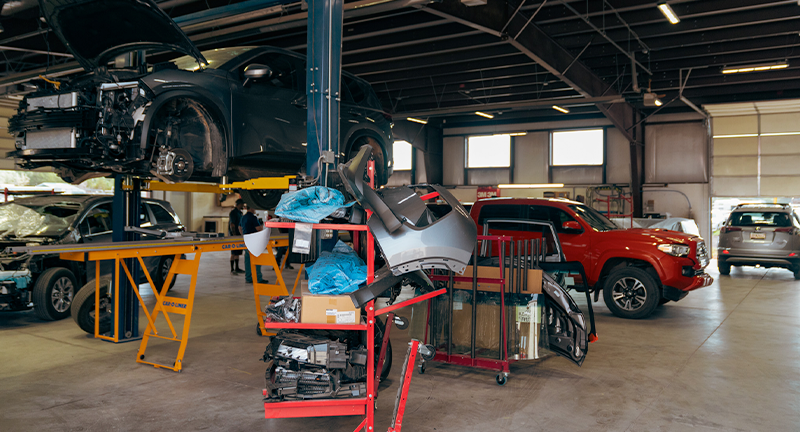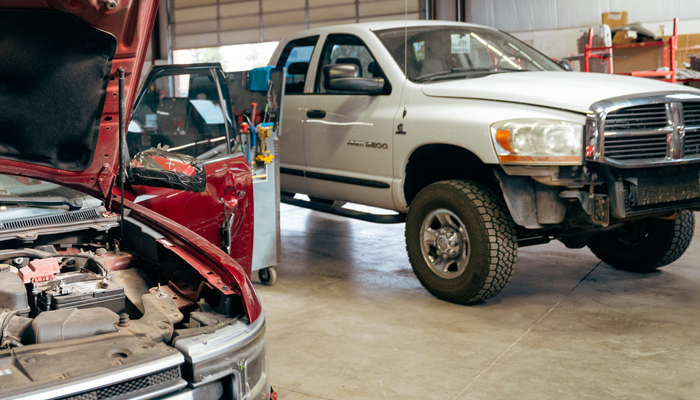Blog
How to Choose Between Repairing and Replacing After a Collision
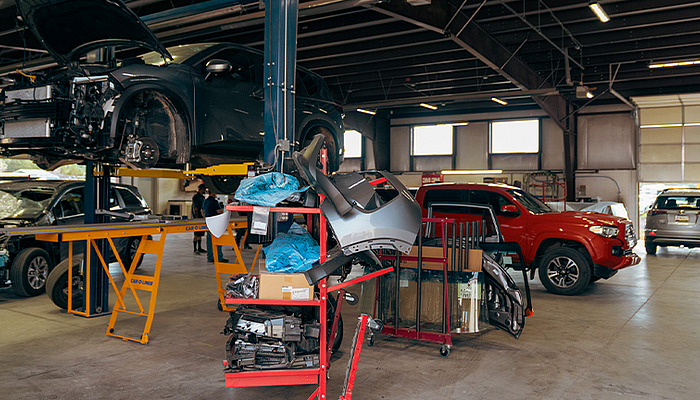
After an accident, one of the first questions drivers ask themselves is: should I repair my car or replace it? The answer isn’t always simple. It depends on the extent of the damage, the value of the vehicle, safety considerations, and insurance involvement. At Heck’s Collision Center, we help drivers across Lakeside, Show Low, and the White Mountains navigate this decision with confidence. Here’s what you need to know when weighing repair versus replacement.
1. Assessing the Extent of Damage
The first step is understanding how badly your vehicle has been damaged. Superficial dents and scratches may look bad, but they’re usually easy to repair. Structural damage to the frame, suspension, or safety systems, however, is more serious and requires careful evaluation.
Our team performs thorough inspections and uses advanced measuring tools to determine whether your vehicle can be safely repaired. Services like frame straightening can restore structural integrity, but there are limits to what’s feasible — and safe — to fix.
2. Considering Safety First
Cosmetic damage may not impact performance, but hidden safety issues are another story. Airbag sensors, seatbelt pre-tensioners, and advanced driver assistance systems (ADAS) may be compromised even if the vehicle appears drivable. If these systems can’t be restored to manufacturer specifications, replacement may be the safest option.
At Heck’s, we always prioritize safety over cosmetics. Through diagnostic scans and OEM repair procedures, we make sure every repair restores the protective systems your family depends on.
3. Evaluating Vehicle Value vs. Repair Costs
One of the biggest factors in deciding to repair or replace is cost. If the repair bill exceeds the value of the vehicle, insurance companies often declare it a “total loss.” Even if the damage doesn’t reach that threshold, it may not make financial sense to invest thousands into an older car that’s worth less on the resale market.
We provide detailed, transparent estimates so you can weigh costs realistically. Our insurance claim assistance also ensures you understand how your carrier will evaluate the situation and what options you have moving forward.
4. Factoring in Insurance Coverage
Your insurance company plays a big role in this decision. Policies vary, but most insurers compare repair costs to the current market value of your vehicle. If repairs are close to or exceed that value, they’ll often recommend replacement. However, as the vehicle owner, you still have some say in the process.
Our team at Heck’s works closely with insurers — including as part of the USAA Stars Network — to advocate for necessary repairs and help you understand your rights in the claims process.
5. Emotional and Practical Value
Not every decision is strictly financial. Some vehicles have sentimental value, while others may simply fit your lifestyle better than a new replacement would. For example, a well-maintained truck that’s set up for mountain driving in Northeastern Arizona might be worth repairing even if it’s older.
We’ve helped many customers weigh these personal considerations alongside the technical and financial factors, so they feel confident about their choice.
6. Common Scenarios: Repair vs. Replace
To make the decision clearer, here are some common scenarios we see:
- Repair: A newer vehicle with moderate damage, where OEM parts can restore it to like-new condition safely.
- Repair: Cosmetic-only issues such as dents, scratches, or minor paint damage that don’t affect performance or safety.
- Replace: Severe frame damage that compromises alignment and long-term safety.
- Replace: Older vehicles where repair costs exceed market value or where parts are difficult to source.
7. The Role of Quality Collision Repair
Not all collision shops are equipped to handle complex repairs. Choosing an I-CAR Gold Class facility like Heck’s Collision Center means your vehicle is repaired by technicians trained in the latest methods and technologies. This can make the difference between a repair that restores full safety and performance versus one that leaves your vehicle compromised.
8. Protecting Long-Term Value
Quality repairs do more than make your car look good again. They protect resale value, maintain proper performance, and ensure insurance coverage isn’t jeopardized in the future. A poor repair can lower the trade-in or resale value of your vehicle significantly, while OEM-standard repairs keep its value intact.
FAQs About Repair vs. Replace
- How do I know if my car is a total loss? Insurers generally consider a vehicle totaled if repairs exceed 70–80% of its market value.
- Can I insist on repairs even if the insurance suggests replacement? In some cases, yes. Our team can help you navigate this with your insurance carrier.
- Is repairing always cheaper than replacing? Not always. Sometimes replacement is more cost-effective long-term, especially for older vehicles.
- What if my car has sentimental value? That’s a valid factor. We’ll provide honest guidance on whether repairs can make it safe and reliable again.
Heck’s Collision Center Helps You Decide
At Heck’s Collision Center, we know the decision to repair or replace isn’t easy. That’s why we provide detailed inspections, accurate estimates, and clear communication with your insurance company. Whether your car is a candidate for safe, lasting repairs or it’s time to consider replacement, we’ll help you make the right choice for your situation.
Contact us today or call 1-928-368-2288 to schedule your inspection. Serving Lakeside, Show Low, and drivers throughout the White Mountains, Heck’s Collision Center is here to guide you through every step after an accident.
‹ Back
